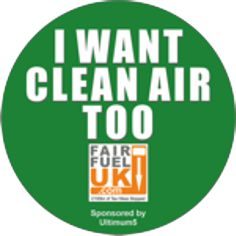The transport secretary has asked for more data before making a “massive decision” on HS2 as it emerged the new high-speed rail link could cost £106bn. A leaked report suggested the project could cost almost double from the £56bn expected in 2015.
Howard Cox, Founder of FairFuelUK said: ‘‘It’s staring everyone in the face, freeing up our motoring economy will benefit the environment and massively boost the economy. Yet the Government is now to spend over £100 billion getting to Birmingham 20 minutes quicker by rail, generating a quarter of the economic benefit that spending the same amount on new roads across the UK would deliver. Despite 90% of all journeys taken by road, rail travel receives nine times more investment. And with our road network such a snarling, constipated ruin we wonder why pollution is claimed to be at record levels?’
FairFuelUK Driver’s Survey 2020
- In the largest ever survey of UK drivers (71,447 responses in FairFuelUK’s December 2019/January 2020 Poll), 2 out of 3 said HS2 should be scrapped. Only 17.5% are firmly in favour of HS2 going ahead with 18% being indecisive.
- 9 out of 10 drivers want a significant increase in spending on new and existing roads PLUS public transport for ALL the UK, at similar levels of investment currently planned on building HS2, in order to reduce congestion, improve air quality and benefit national and local economies.
- 91% want the Government to produce a Long Term Roads Transport Plan. Covering taxation, funding, technology and investment. Thats fair to drivers and without cliff edge vehilce ban targets.
Since 2011 FairFuelUK has repeatdely warned the Government that their way over budget vanity project will be an expensive red herring. 2 years ago FairFuelUK commissioned the CEBR to ascertain, what the same level of HS2 investment if spent on UK roads would mean to the economy when compared to funding HS2.
Those CEBR findings are even more relevant today:
- The CEBR report proved that chronic under investment in roads is risking public health and productivity, with traffic congestion draining £307bn from the UK Economy.
- Had the same investment (£55bn) budgeted at the time in 2017 (now double that) for HS2 been directed into roads, there would be benefits of £250.7 billion to the economy. This is more than four times the expected net benefits of the entire HS2 network.
- Simply diverting investment from roads to other forms of transport is unlikely to solve the environmental issues in the transport sector. In fact, it is likely to exacerbate them.
Key Points from CEBR 2017 Report produced for FairFuelUK now coming home to roost:
- Rail investment is almost nine times that of road investment per mile – £186,000 was spent on rail infrastructure for every million miles of passenger travel, compared to £21,000 for road spending.
- The average delay on the UK’s Strategic Road Network, responsible for around two-thirds of all haulage, was 9 seconds per mile in 2016, or 4.9 days lost per person in the UK.
- Congestion is extremely costly to the UK economy – delays costs drivers lost wasted time and petrol, as well as pushing up the cost of doing business. We estimate the total cost of road congestion to be £307 billion from 2013 to 2030 in the UK.
- Road congestion in cities holds back local growth – in the UK’s top ten most congested cities, at least 30% of time is added to the average journey by car through delays.
- Road investment is better value for money – Highway investments return average benefits of £4.66 in per pound spent, compared to £2.83 for rail.
- Had the same investment of HS2 been spent on road, based on historic averages for road investment, there would be benefits of £251 billion. For the cost of HS2, it would be possible to widen over 1,900 miles of motorway, every motorway in England.
- A smart Active Traffic Management system could be applied to every UK motorway, yielding benefits of £117 billion, for just over a third of the cost of HS2.
